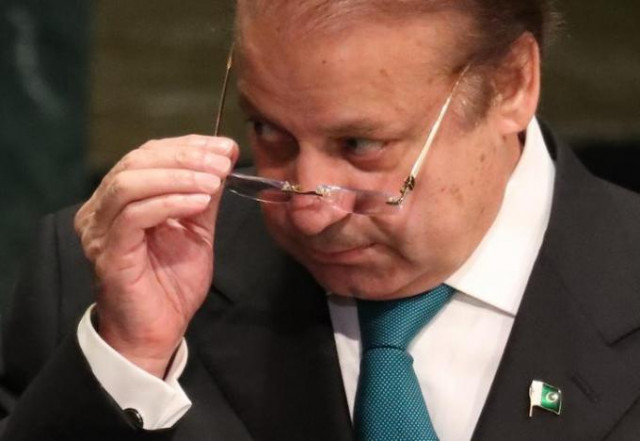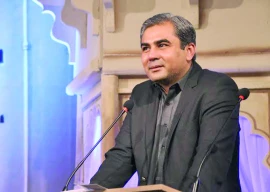
During a hearing, the bench heard from Waseem Sajjad, counsel for a parliamentarian, that in the present form, the Article 62 is confusing and that there was a need for resolving controversy around it.
“Honesty is very important for legislators. They are trustees of the state. We are talking about leaders who will govern the country, therefore, we need to make standards,” Justice Umar Ata Bandial, sitting on the bench said.
Nawaz no-show: SC issues second notice to former PM in disqualification time-period case
Justice Bandial questioned whether disqualification under Article 62 (1) (f) of the Constitution was a disability or a punishment. He also asked whether Article 62 (1) (f) of the Constitution would be applicable to the person, who had been disqualified under Article 63 of the Constitution.
Heading the bench, Chief Justice Mian Saqib Nisar endorsed his view. He said that dishonesty was cheating and the parliament should not be a place for ‘cheaters’. Therefore, there should be some lifetime bar.
However, he added that if there was an omission it would not bar the Supreme Court from interpreting the constitutional provisions by applying legal tools. He observed that if the duration of disqualification was not mentioned it did not mean it was for life.
He said if the parliament did not set disqualification period in Article 62 (1) (f), there was no bar on the apex court regarding its interpretation. He also said that the scope of Article 62 (1) (f) was wider in nature.
The Chief Justice questioned whether a parliamentarian, who had been disqualified under Article 62 (1) (f) three months before general election, would be eligible to contest.
Also sitting on the bench, Justice Azmat Saeed Sheikh asked counsel for parliamentarians that instead of seeking the Supreme Court to determine the time duration of disqualification, why didn’t they approach the parliament for that.
Likewise, Justice Ejaz-ul-Ahsan wondered when the parliament amended Article 63 of the Constitution by giving specific time duration of disqualification, why it did not amend Article 62 (1) (f). However, he added that a declaration of court under Article 62 (1) (f) could not be overridden.
During the hearing, the bench noted that there was lifelong disqualification under Article 63 of the Constitution before the passage of the 18th Constitutional Amendment.
Waseem Sajjad, counsel for a parliamentarian, stressed the need for resolve the controversy around the Article 62, saying that the article was confusing in its present form.
His point was that the Article 62 (1)(f) did not give ‘punishment’ which had been mentioned in the Article 63 and according to that article, the time duration of disqualification would be five years. “If we accept this interpretation then Article 62 will be redundant,” Justice Sheikh quipped
Munir A Malik, who has been appointed as ‘Amicus’ (friend of the court) in the case, stated that the right to contest in elections was a fundamental right. Therefore, the articles 62 and 63 should be read in a manner that the fundamental rights of any person were not infringed upon.
Malik also stated that the duration of disqualification was mentioned in the Article 63 that says members of the provincial assembly (MPAs) would be disqualified for five years.
SC summons Nawaz Sharif, Jahangir Tareen in disqualification limit case
Meanwhile, Sikandar Bashir Mohmand, counsel for the Pakistan Tehreek-e-Insaf (PTI) leader Jahangir Tareen, adopted the arguments of Malik. He stated that disqualification under Article 62 (1) (f) of the Constitution was not permanent or perpetual.
“There is guideline in Article 63 of the Constitution, Section 100 of the Representation of the People Act, 1976, and Section 15 of the National Accountability Ordinance, 1999, on the minimum and maximum lengths of the disqualification,” he added.
The counsel wondered that the person, who was involved in heinous offences, could contest election after specific time but he had been disqualified for life under Article 62 (1) (f). He stressed that moral turpitude was a graver offence than holding of two identity cards.
At the onset of the hearing, Azam Nazeer Tarar, a representative of the Sharif family told the bench that Nawaz Sharif was seeking three days time for consulting his party leaders as well as engaging a counsel in this matter. The bench accepted his plea.






1726054615-0/OpenAI-(2)1726054615-0-270x192.webp)











COMMENTS
Comments are moderated and generally will be posted if they are on-topic and not abusive.
For more information, please see our Comments FAQ